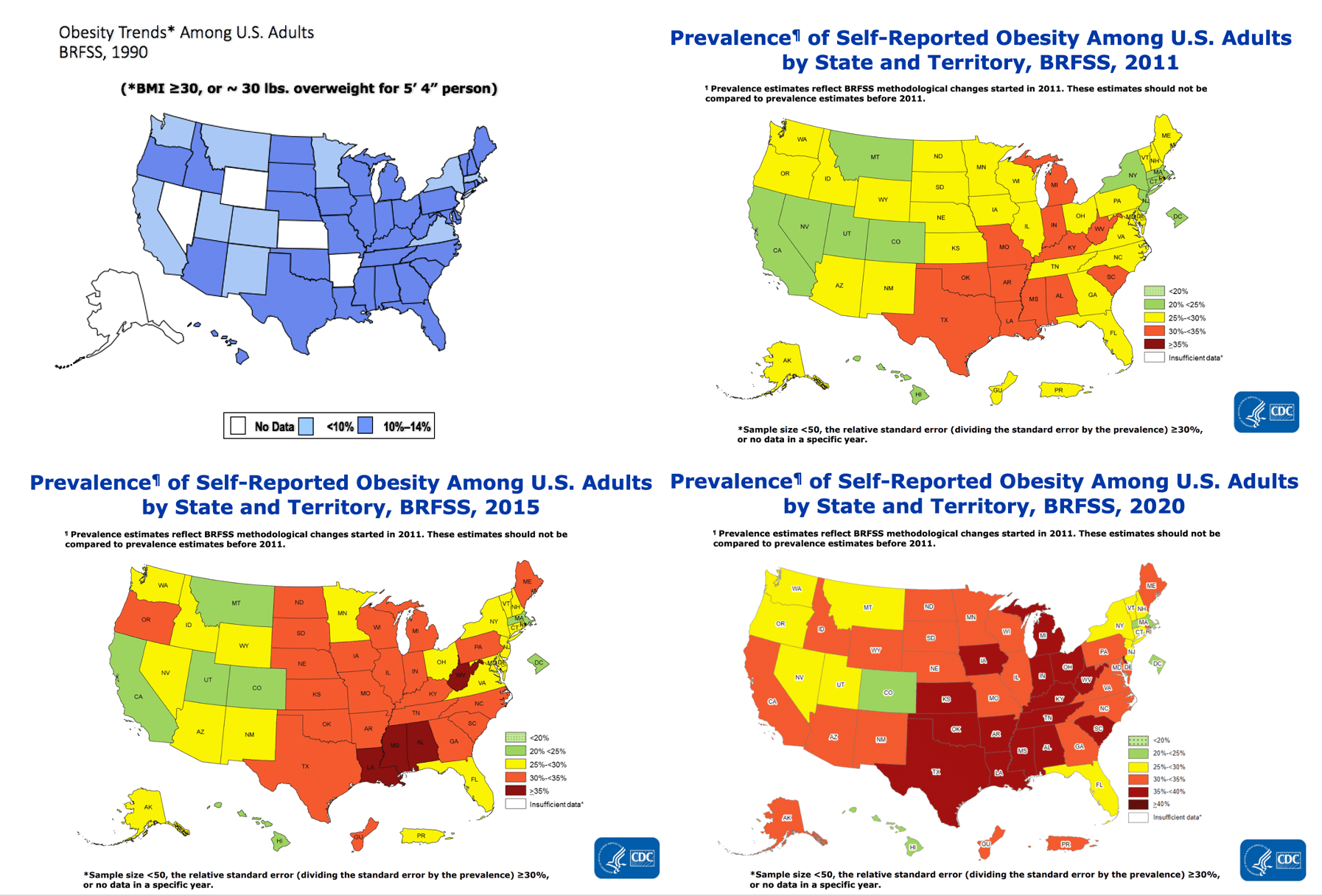This Research Revealed the Top 12 causes of Preventable Death in the United States:
DEATHS by DIET: 1,319,000
The wrong diet is the
#1 cause of preventable death
Diet is a crucial aspect of any and every health challenge. FoodPharmacy™ assists you in developing the ideal support plan for your patients.
In a complex study on mice, published Nov. 2021, comparing 40 different treatment protocols, although we cannot state with certainty that it would be the same with humans, the authors imply that they are led to believe that it should. The study found that diet and food had a much more pronounced and powerful effect on metabolic health and aging than pharmaceuticals.
This research out of the University of Sidney suggested that the makeup of our diet could be more powerful than drugs in keeping conditions like diabetes, stroke, and heart disease at bay.
The lead author, Dr. Stephen Simpson stated, “We discovered dietary composition had a far more powerful effect than drugs, which largely dampened responses to diet rather than reshaped them.”
The study also stated: “Dietary composition has a powerful impact on the hepatic proteome, not just on metabolic pathways such as mitochondrial function and RNA splicing.” They also stated that food and diet had a particularly powerful effect not just on metabolic pathways, but also on fundamental processes that control the way our cells function.
The study talked about how the drugs only targeted specific nutrient sensing, while food and diet influenced many factors, including genes, particularly those that make proteins, as well as upregulating the mitochondria, which produces cell energy. It was shown that diet and food fundamentally reshaped / changed aging and metabolic responses unlike the drugs. It was also noted that diet had a profound effect on the liver.
The key is to support the innate power of the body and one of the best ways to do that is with food. By the way, the research also stated: “the drugs mainly acted to dampen the cell’s metabolic response to diet, rather than fundamentally re-shaping them.”
“Approximately 50% of American adults have at least one nutrition-related chronic disease.”
“The prevalence of obesity in the United States (U.S.) population is a staggering 42%, and rates of nutrition-related chronic disease are climbing across the globe.”
“Food pharmacy, also coined “food farmacy,” is a component of the “food is medicine” initiative, which aims to integrate or coordinate nutrition interventions with the healthcare system.”
“Prevention-focused diet and lifestyle modifications could have a major beneficial impact on health in the U.S.”
“Despite well-established links between nutrition and chronic disease, the global and U.S. healthcare community has failed to implement effective strategies at-scale to improve dietary intake for the prevention, management, and treatment of nutrition-related chronic diseases.”
“Existing research on the efficacy of the food pharmacy model shows that these programs have been effective in improving patient understanding of nutrition and removing barriers to healthy eating, and in turn may have a significant impact on diet-related health outcomes.”
[Note: these statements, as well as the review referenced in the journal, is not directly referring to the FoodPharmacy™ program, but the process of using food as an intervention in healthcare.]
The report lists 4 Strategic Goals to answer over the next 10 years:
Dr. Francis S. Collins, head of the NIH states at the beginning of the report:
“How can we improve the use of food as medicine?”
“What should we eat to stay healthy? Answering this question seems like it should be easy, but each of us knows that it is not. Dietary recommendations issued over past decades have aimed to guide what we eat to promote good health. But for many of us, these one-size-fits-all, “eating right” strategies have been frustrating to figure out and put into practice.”
“What if each of us had individualized, actionable dietary recommendations that helped us decide what, when, why, and how to eat to optimize our health and quality of life?”
Nearly all degenerative diseases have the same underlying biochemical etiology; that is a diet-induced pro-inflammatory state.
Practitioners and researchers have understood the need for diet therapy and have been looking for the solution that FoodPharmacy™ provides.
Katie Robinson, PhD, MPH, a former researcher in I-TOPP (Illinois Transdisciplinary Obesity Prevention Program), who wrote in an October 2017 study that “In practical terms, it would be ideal to start by understanding someone’s basic biology, which may influence how they’re metabolizing and utilizing the nutrients they are eating. It would be great to bring people in, find out where their biology is at, and then tailor a diet for them, but we need a lot more research before we get to that point.”
Personalized specific nutrition is the answer whether for a health challenge or weight loss. Research has shown that like health challenges, personalized weight loss programs are better than a one-size-fits all program.
FoodPharmacy™ is your solution to personalized diet therapy.
It’s time to Break the Cycle…
Since 1990…
Obesity went from 11.6% in 1990 to over 42.4% in 2020 in the United States

Diabetes went from 4.9% in 1990 to 11.3% in 2020 in the United States with similar rises across the globe.
The incidence of chronic disease and autoimmune is skyrocketing.
Regardless of where you are in the world… It’s time to Be a Part of the SOLUTION!